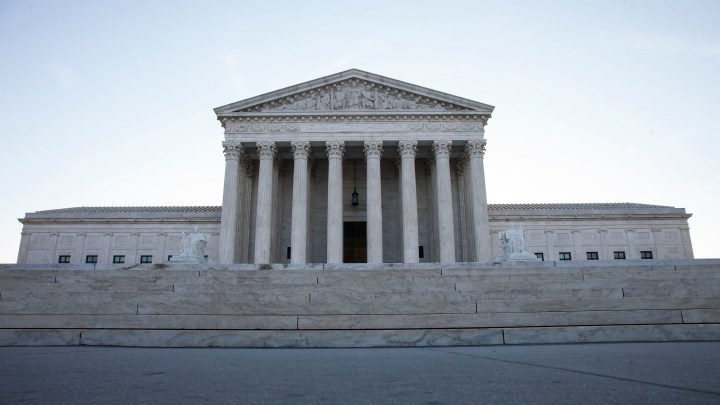
How broadly will a Supreme Court ruling on LGBTQ rights and religious freedom apply?
How broadly will a Supreme Court ruling on LGBTQ rights and religious freedom apply?

The Supreme Court ruled unanimously Thursday that the city of Philadelphia violated the First Amendment rights of Catholic Social Services when it stopped working with the agency on placements into foster care. Philadelphia stopped working with the organization after it refused to work with same-sex couples. Lawyers for the city had argued that was discrimination. But the Supreme Court ruled the city’s position violated the Catholic agency’s religious rights.
What will this decision mean for other organizations?
The court decided this case on relatively narrow grounds, said Cary Franklin at the Williams Institute at UCLA. “The court wrote the decision in a way that was limited to the facts in this case,” much like a ruling from a few years ago where the justices decided in favor of a Colorado baker who refused to make a cake for a same-sex wedding,” Franklin said. “We’ve now had two cases in a row where the court has declined to take this huge bite out of anti-discrimination law.”
Still, the ruling is a win for religious rights over LGBTQ rights, she said. And Katherine Franke at Columbia Law School said it could end up applying pretty broadly. “The court is now ranking constitutional rights. There are top-tier rights, religious liberty at the very top, and equality, whether it’s race or sex or LGBT equality, is a second-tier right.”
Franke said that’s indicative of a shift at the Supreme Court.
There’s a lot happening in the world. Through it all, Marketplace is here for you.
You rely on Marketplace to break down the world’s events and tell you how it affects you in a fact-based, approachable way. We rely on your financial support to keep making that possible.
Your donation today powers the independent journalism that you rely on. For just $5/month, you can help sustain Marketplace so we can keep reporting on the things that matter to you.











